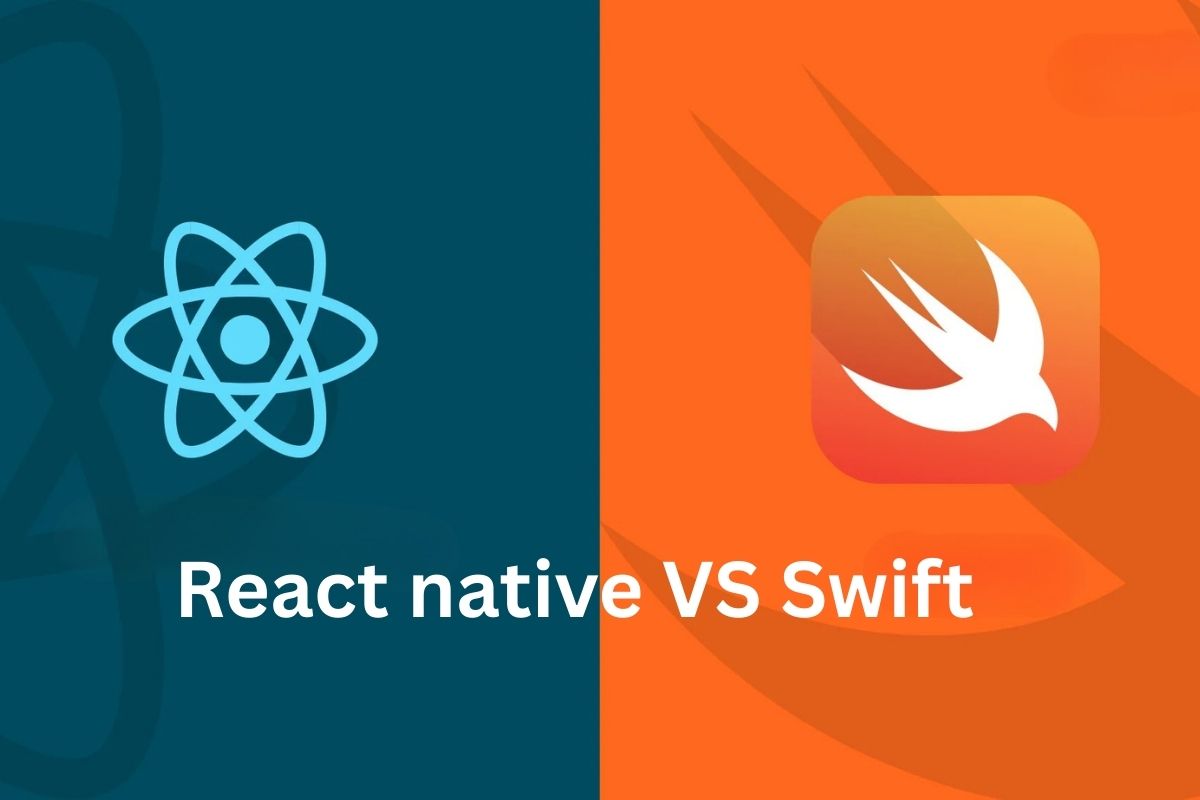When developing a mobile app, one of the first questions developers and businesses ask is: What programming language or framework should I use? Two of the most popular options today are Swift and React Native. Swift is Apple’s official language for building iOS apps. React Native, developed by Meta (Facebook), is a framework that allows you to write code in JavaScript and use it on both iOS and Android platforms. This blog will help you understand the core differences, pros, and cons of React Native vs Swift in simple English, so you can choose the right framework for your mobile app.
Key Points:
- Swift is ideal for iOS-only apps and offers the best performance.
- React Native is best for cross-platform apps using a single codebase.
- Choose based on app goals, team skills, and timeline.
What Is Swift and When Should You Use It?
Swift is a powerful and modern programming language developed by Apple. It is specifically designed for iOS, macOS, watchOS, and tvOS development. Swift is known for its speed, safety, and ease of use. Developers appreciate its strong typing system, clear syntax, and real-time feedback.
If you are building a native iOS app and performance is a high priority, Swift is often the best choice. Apps built with Swift tend to load faster, feel smoother, and can access the latest Apple hardware and software features. Swift also integrates easily with Apple’s native tools like Xcode and SwiftUI.
For example, if you’re building a complex iPhone game or a financial app requiring secure and fast operations, Swift is likely the right path. It’s the go-to language for developers who want total control and maximum speed.
Reminder: Swift is Apple-only. You cannot use it for Android development.
What Is React Native and Why Choose It?
React Native is an open-source framework created by Meta (formerly Facebook) that allows developers to build mobile apps using JavaScript and React. The main appeal of React Native is code reusability. You can write one set of code and run it on both iOS and Android devices.
This saves time, money, and development effort. Companies with tight deadlines or limited budgets often prefer React Native. It offers near-native performance and supports hot reloading, which allows developers to see changes instantly without rebuilding the app.
For example, startups often use React Native to launch an MVP (Minimum Viable Product) quickly on both platforms. Apps like Instagram, Facebook, and Airbnb have all used React Native in some capacity.
Note: While React Native supports both platforms, some features may require native modules.
React Native vs Swift: Which One Offers Better Performance?
Performance is a major factor when choosing between Swift and React Native. Swift apps typically perform better because they are compiled directly into native code. This leads to faster execution, smoother animations, and more efficient memory usage.
React Native, on the other hand, bridges JavaScript code to native APIs. This can introduce slight delays and performance issues, especially in graphics-intensive or real-time applications like 3D games.
Let’s compare the two in a simple table:
| Feature | Swift | React Native |
|---|---|---|
| Compilation | Native (fastest) | JavaScript bridge (slower) |
| UI Performance | Smooth | Almost native |
| Memory Efficiency | High | Moderate |
| Suitable For Games | Yes | Limited |
If your app requires high graphics performance or intensive tasks, Swift is a better option. For general-purpose apps, React Native offers performance that is acceptable for most use cases.
How Easy Is It to Learn and Use Each?
Ease of learning depends on your background. If you are new to mobile development and already know JavaScript, React Native will be easier. Its use of JavaScript and React makes it a familiar environment for web developers.
Swift, while more modern than Objective-C, has a steeper learning curve if you’re new to iOS development. You also need to learn Apple’s development environment (Xcode), design principles (like SwiftUI), and guidelines.
Here’s a comparison chart on learning difficulty:
| Aspect | Swift | React Native |
|---|---|---|
| Language Complexity | Medium | Low |
| Community Support | High (Apple dev community) | High (JavaScript devs) |
| Documentation Quality | Excellent | Excellent |
| Learning Curve | Steep | Gentle |
React Native wins in terms of accessibility, especially for teams transitioning from web development to mobile. mavuika.org
React Native vs Swift: Which One Is More Cost-Effective?
Cost is another key factor for many businesses. React Native offers significant cost advantages because you only need to develop and maintain one codebase for both iOS and Android.
With Swift, you need separate development for each platform if you’re building a cross-platform app—Swift for iOS and Kotlin or Java for Android. This means more resources, more time, and higher maintenance costs.
Example: A small business wanting an e-commerce app for both iOS and Android can build one app in React Native rather than two native apps, cutting development costs by almost half.
Reminder: Maintenance and updates are easier with React Native because of the single codebase. mavuika.org
Conclusion
Choosing between Swift vs React Native depends on your project needs, team skills, timeline, and budget. Swift offers better performance and full access to Apple features, making it ideal for high-end iOS apps. React Native provides faster development across platforms with a single codebase, making it ideal for startups or projects with tight budgets.
Use Swift if:
- Your app is iOS-only.
- You need high performance (e.g., games, real-time apps).
- You want full access to Apple’s latest features.
Use React Native if:
- You want one app for iOS and Android.
- You need to build quickly and cost-effectively.
- You have a web development background.
No matter which you choose, both are powerful tools that can help bring your app idea to life.
FAQ’s
1. Is Swift faster than React Native?
Yes, Swift apps generally perform faster because they compile directly into native code.
2. Can React Native be used for iOS apps?
Yes, React Native works for both iOS and Android using the same codebase.
3. Which is better for a startup: Swift or React Native?
React Native is usually better for startups due to faster development and lower costs.
4. Do I need a Mac to develop in Swift?
Yes, Swift development requires macOS and Xcode, which only run on Apple devices.
5. Which one has a larger community: Swift or React Native?
React Native has a broader community among JavaScript developers, while Swift is popular in the Apple ecosystem.




